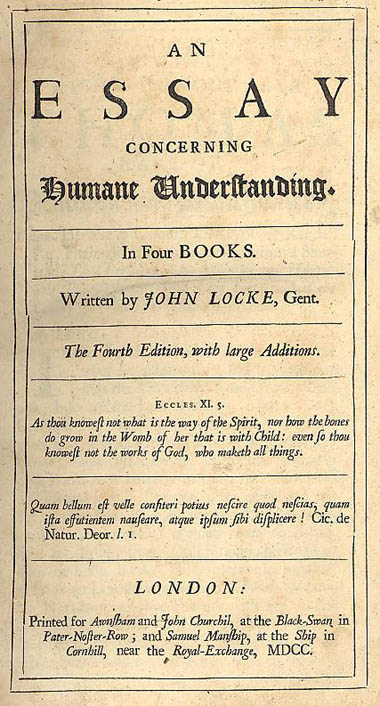
Last week Dr. Jonathan S. Marko, Assistant Professor of Philosophical & Systematic Theology at Cornerstone University, spoke before some Acton Staff and local scholars on John Locke and the role of Scripture in public morality. The talk, “‘Ready Dug and fashioned’: John Locke on Scripture’s Primacy for Public Morality,” was followed by a lively question and answer session in which Dr. Marko graciously took on all comers helping us better understand Locke’s moral philosophy and personal religious convictions.
Dr. Marko began his talk by discussing Locke’s thought in the context of the then contemporary debates on the nature of moral principles and public morality. Locke argued against the deists of his day that moral principles are not innate but merely seem so as a result of the broader culture’s Christianity. For this reason Locke held that the authority of the Bible is essential for the growth and flourishing of a truly moral society:
Everyone may observe a great many truths which he receives at first from others, and readily assents to, as consonant to reason; which he would have found it hard, and perhaps beyond his strength to have discovered himself. Native and Original truth, is not so easily wrought out of the Mine, as we who have it delivered, ready dug and fashion’d into out hands, are apt to imagine.
– John Locke, The Reasonableness of Christianity
Dr. Marko argues convincingly that the key to understanding Locke’s position is to take into account both his notion of the human person as a ‘tabula rasa’ (blank slate) which he argues for in his An Essay Concerning Human Understanding and the relationship of revelation and morality argued for in his The Reasonableness of Christianity.
Locke claims that the New Testament offers a unique advance in morality above ancient societies and their laws. The apparent facile nature of this morality is not the product of its being innate in people or easily derivable through reason but is due to the principles having been taught and inculturated in people by the broader society since their youth. Locke in fact argues that it is easier to prove the divine origin of special revelation itself than to make arguments for ethical positions from reason alone.
Locke’s claims about the role of revelation in public morality are often overlooked by modern scholars and Dr. Marko is doing valuable work to correct this misreading.
While different in content from his talk, Dr. Marko’s recent book, Measuring the Distance between Locke and Toland: Reason, Revelation, and Rejection during the Locke-Stillingfleet Debate, is an excellent example of the work of this fine Grand Rapids based scholar. His article, “The Promulgation of Right Morals: John Locke on the Church and the Christian as the Salvation of Society” was published in issues 19.1 of the Journal of Markets and Morality.

